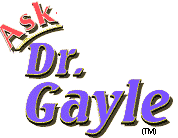
Television, news and young childrenQUESTION: I am concerned that my two children, ages 2 and 4 could be frightened by what they hear in the news, on radio or television. There is so much reference to violence. How can I protect my children from overload of this kind? ANSWER: The concept of danger is not new to young children. We teach our toddlers to stay out of streets and keep their hands away from the fire on the kitchen stove. We even warn our children not to talk to "strangers" from an early age. Our children believe in their parents' ability to keep them safe. They look to us for answers as well as protection. But how can we explain senseless violence and tragedy to our children when we do not understand it ourselves? How do we protect our children from a flood of anxiety over the latest breaking news on the radio, or TV? The good news is that parents are the filters through which our children process worldly experience. They will accept our comfort and our direction. It is inevitable that our children will hear upsetting stories. But it is necessary to shield young children from overwhelming feelings of helplessness in the face of adversity of any kind. Safeguard your child from more bad news than they can handle at one time. 1. Do not make a habit of watching the news with your child present. Just as you would not allow your young child to watch a show depicting rape and murder, do not expose them to nightly news reports of violence. Turn your television off! Young children do not have the filters that adults have developed. They are defenseless to the assault on the senses that realistic violence presents, whether fact or fiction. 2. Consider limiting television viewing time and restricting violent or otherwise inappropriate content. Know what shows your child watches each day and make a point to view and discuss these programs together! 3. Do not over-use educational television for "babysitting" your preschooler. Although educational programs can benefit a child, they should not replace the person-to-person interaction young children need in order to develop socially, intellectually and physically. In fact, The American Academy of Pediatrics has recently taken a "no TV" stance for children under the age of two! 4. If your child is exposed to an upsetting news story, do your best to answer questions as truthfully as possible, but without unnecessary details. Monitor your child's level of anxiety and help them cope by ending the conversation with stories and methods of successful protection or problem solving. For example, cases in which children have escaped abductors because they yelled, or did not go with a stranger who offered them candy or money, are also true stories! Positive identification with a capable authority figure helps to protect a young child's psyche from the fact of their very real vulnerability. This is what wanting to be the "fireman", or "policeman" (or even batman!) is all about. Aligning themselves with powerful, effective authority figures in a story with a positive outcome helps them feel if not invincible, at least safe.
Gayle Peterson, MSSW, LCSW, PhD is a family therapist specializing
in prenatal and family development. She trains professionals in her
prenatal counseling model and is the author of
An Easier Childbirth,
Birthing Normally
and her latest book,
Making
Healthy Families.
Her articles on family relationships appear
in professional journals and she is an oft-quoted expert in popular
magazines such as Woman's Day, Mothering and Parenting.
.
She also serves on the advisory board for Fit Pregnancy Magazine.
Dr. Gayle Peterson has written family columns for ParentsPlace.com, igrandparents.com, the Bay Area's Parents Press newspaper and the Sierra Foothill's Family Post. She has also hosted a live radio show, "Ask Dr. Gayle" on www.ivillage.com, answering questions on family relationships and parenting. Dr. Peterson has appeared on numerous radio and television interviews including Canadian broadcast as a family and communications expert in the twelve part documentary "Baby's Best Chance". She is former clinical director of the Holistic Health Program at John F. Kennedy University in Northern California and adjunct faculty at the California Institute for Integral Studies in San Francisco. A national public speaker on women's issues and family development, Gayle Peterson practices psychotherapy in Oakland, California and Nevada City, California. She also offers an online certification training program in Prenatal Counseling and Birth Hypnosis. Gayle and is a wife, mother of two adult children and a proud grandmother of three lively boys and one sparkling granddaughter.
Copyright 1996-2003. Gayle Peterson All rights reserved.
|